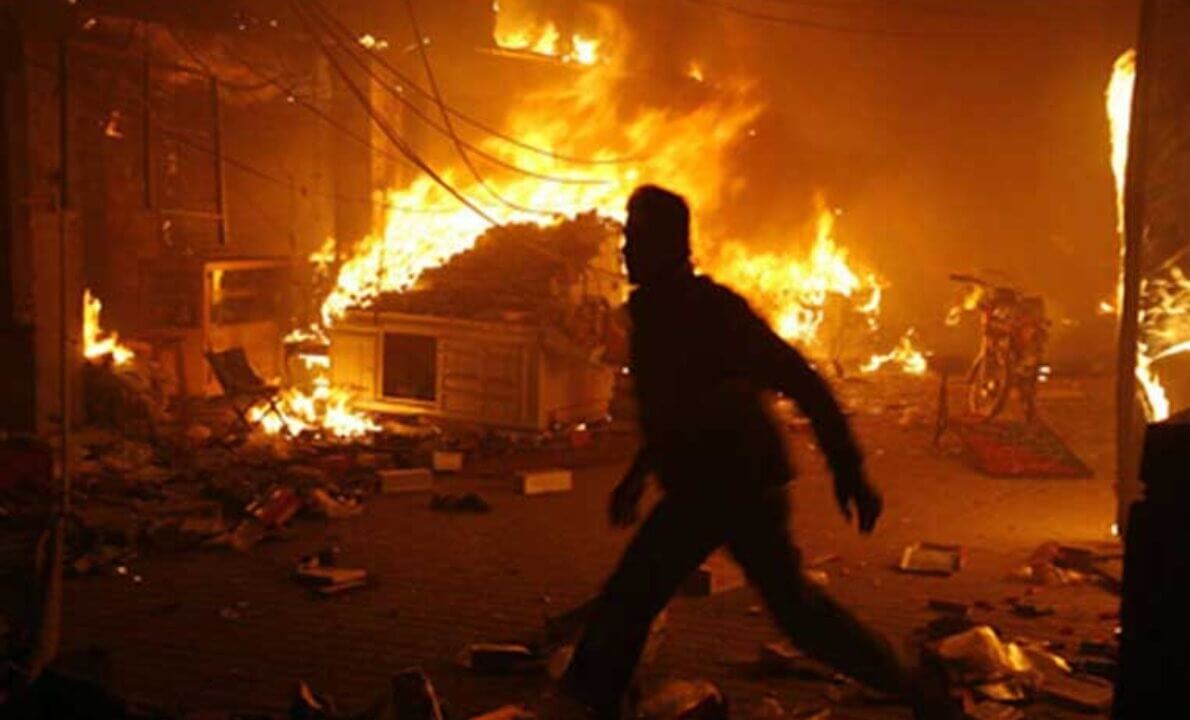International Terror War Theatre Shifting to Pakistan?
Imtiaz Gul | 21 September 2023
Are the goal-posts in counter-terrorism changing? Is the battleground expanding beyond Afghanistan?
Are the goal-posts in counter-terrorism changing? Is the battleground expanding beyond Afghanistan and possibly moving into Pakistan? Some recent statements originating in Western capitals, including Washington DC, provide pointers for speculation as to how the situation is changing in the context of US-China competition and what is in store for Pakistan.
The post 9/11 invasion of Afghanistan began on October 7, 2001 with the first massive bombardment of strategic installations in and around Kabul, including the airport and the airfield at Bagram.
The stated objective was decimation of Al-Qaeda. The Operation Enduring Freedom literally ended abruptly with the arrival of the Taliban on August 15 two years ago. This hastened the withdrawal of the US-NATO troops from Afghanistan as well as evacuation of several thousand co-workers, diplomats and Afghan Americans.
It meant the enemy i.e. the Afghan Taliban — the inflexible hosts of Al-Qaeda — that the US-NATO campaign aimed to vanquish rebounded as the victor.
Meanwhile Daesh or the Islamic State of Khorasan Province (ISKP) had emerged in November 2014 under Haifz Saeed Orakzai. This group either co-opted or partnered with various offshoots of TTP — Ahrarul-Hind, JamaatulAhrari.a. — and began a massive terror campaign inside Afghanistan from its hideouts in eastern Afghanistan.
Its targets included the Ashraf Ghani government as well as the Afghan Taliban (TTA), which also prompted former president Hamid Karzai to question the emergence of a new rag tag army threatening the peace in the region.
Strangely, by early 2020, the Afghan government and the western security officials as well as experts began branding ISKP as the biggest threat to the region and the world. The focus shifted from Al-Qaeda, and IS took the centre stage of all CT conversations.
And soon after the Taliban seized Kabul in a bloodless transition of power, western officials had begun warning of an ISIS-ISKP attack on US interests very soon.
“The IS could carry out an ‘external operation’ against the United States in less than six months,” Gen Erik Kurilla, the current CentCom chief had said in recent interviews.
Following up on this warning, Gen Kenneth Frank McKenzie, a predecessor of Kurilla, says the Islamic State group (IS) has become a “more enduring threat than Al Qaeda after the US withdrawal from Afghanis¬tan”.
Asked how he viewed Gen Kurilla’s warning of an IS attack within “six months”, McKenzie said he believed “the IS had always wanted to attack Americans on their soil.”
So far not a single significant IS-related incident has been registered in the US.
As recently as on September 12, the US Special Representative for Afghanistan, Tom West, said that Al-Qaeda was at its “historical nadir” in the region and their ability to threaten the US from their bases was at its lowest point since the group relocated to Afghanistan from Sudan in 1996.
During the same conversation at the Stimson Center, Tom West admitted that the Taliban rulers had “significantly degraded” the IS capabilities.
In his opening remarks at the Stimson Center seminar, Tom West described the TTP as the terror group “that’s posing the greatest threat to the stability of the region”. “We have seen a very significant increase in attacks directed at Pakistan,” he said.
Whether Pakistan is currently a hindrance or a hell in the way of achieving US objectives.
Until very recently, foreign security experts and officials — including those from major European capitals — touted the ISKP as the “single biggest threat to the regional peace”.
Now, Tom West has equated the TTP with ISKP/Daesh. What implications does it actually entail for Pakistan — which remains wary of TTP’s terror campaign and is at odds with the Afghan Taliban for hosting and overlooking the terror group’s activities?
When asked during the seminar about the status of cooperation with Pakistan and whether the country was a hindrance or a help in the way of achieving the US objectives in the region, Tom West made a remark that should alarm any thinking Pakistani: “I would say on balance they are a help. They are certainly a partner when it comes to security issues… helpful trouble-shooter when it comes to relocation related issues…..So, on balance, I would say help.”
And in Islamabad, caretaker Prime Minister Anwaar-ul-HaqKakar literally spilled the beans — though indirectly — on the current status of the Pak-US counterterrorism cooperation. During an interaction with foreign media in Islamabad early this month, Kakar claimed that the leftover US military equipment in August 2021 had enhanced the capability of the TTP and Baloch insurgents to fight the Pakistani state.
“This is a challenge (modern US weapons in the hands of unwanted groups) where we, along with our international partners against terrorism, need to coordinate, cooperate, and work together. And I believe that in initial briefings to me from the security side, my understanding is that we are already working on that with our partners, be it the United States and others, EU, UK, and the rest of the powers.”
Kakar’s remarks prompted a Chinese journalist present at the briefing to seek his reaction to “concerns or speculations” in Beijing that Pakistan could once again provide bases to the US in the name of fighting terrorism.
The prime minister pretended ignorance, saying he was unaware of any such discussions in “relevant Pakistani quarters”.
Indications are stronger than ever that the global war on terrorism has shifted to Pakistan. In 1980s it was sandwiched between the US-Soviet geopolitical rivalry, and is now stuck between the Sino-US competition. Hard times ahead with proxy terrorism likely to intensify.
The writer heads the independent Centre for Research and Security Studies, Islamabad and is the author of ‘Pakistan: Pivot of HizbutTahrir’s Global Caliphate’
This article was originally published on The Express Tribune.
Views in this article are author’s own and do not necessarily reflect CGS policy.
